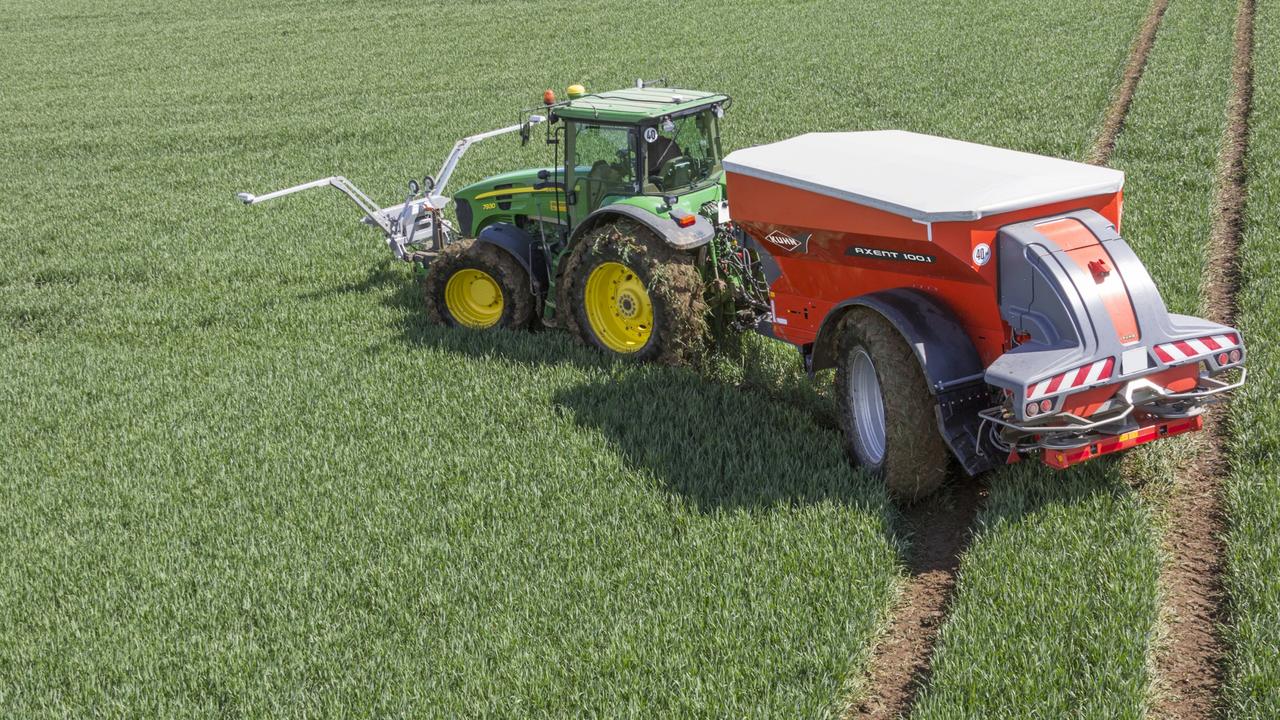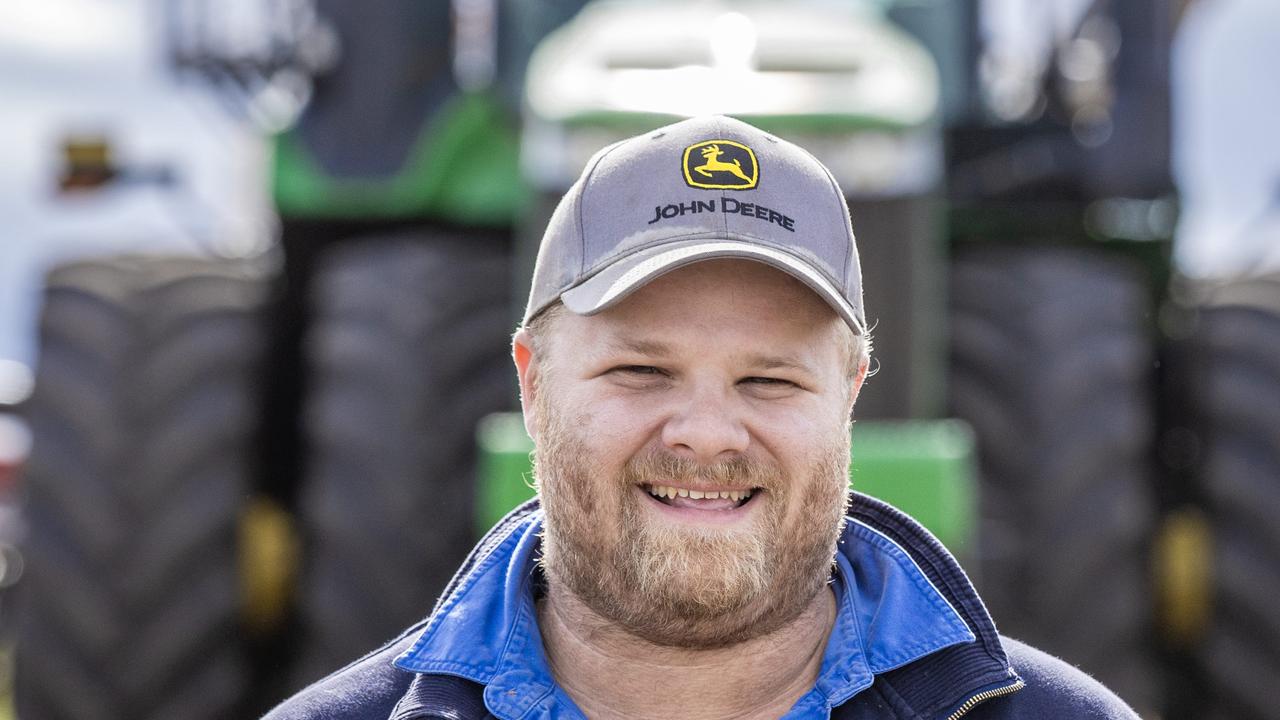Donald farmers Kyle and Teghan Pearse harvest Victoria’s first Certified Sustainable barley
A Donald family has made big changes to open a valuable market for their grain, while boosting soil health and input efficiency.

Grain growers Kyle and Teghan Pearse will soon have a cracking reason to raise a glass to their farming journey so far.
And that glass will be a cool beer brewed using cereals grown on their family farm in Victoria’s Mallee.
The Pearses have just harvested their first certified sustainable barley crop – becoming the first and only growers in Victoria to gain the certification, in a bid to differentiate their grain, tap into new markets and hopefully command a premium price for some of their produce.
The certified barley will be malted by Boortmalt and soon be available to microbreweries Australia-wide through distributor Bintani.
“As a bit of a beer lover, I love the idea of our barley going into unique and different beers,” Kyle said.
Obtaining the certification is an exciting step for the young couple, and adds a new chapter to the family’s century-and-a-half history on their 2400ha at Donald.
“My family has been on the same patch of dirt for 150 years this year,” Kyle said, “and we’re really thankful for all those who have made it possible for us.
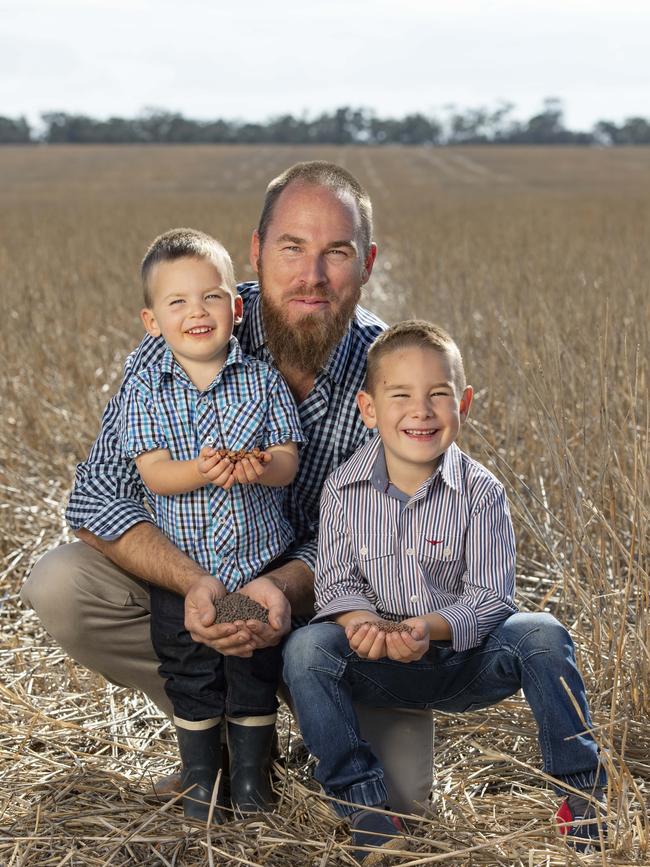
“We’ve got three kids, and I’d like to be able to give them all the opportunity to continue farming if farming is what they want to do.
“That means we need to have our land in great shape, and have a profitable, forward-moving business that is viable for the next generation.
“I’d like to work out how that can happen without the typical doubling land holding every generation.
“From my perspective it means we need grow more grain for a lower cost, and then market it not as a bulk commodity, but as something that consumers highly value.”
The couple returned to Kyle’s family farm in 2016 to help his parents, Geoff and Carolyn, run the operation growing canola, wheat, beans, lentils, barley and sometimes oaten hay across the entire property.
Now working in partnership with Geoff and Carolyn, Kyle and Teghan, and their young sons Jack, Ted and Charlie, have put firm focus on maximising soil and plant health, making efficient use of nutrient and fertiliser applications and getting the most “bang for their buck” out of any investment in inputs, machinery and man hours.
To meet the stringent certified-sustainable standard, the couple had to make changes over the past three years to ensure traceability of their grain, improve soil health, conserve water, boost biodiversity, cut emissions, keep detailed records of on-farm work and input applications and even meet community and social expectations.
FROM THE GROUND UP
Kyle’s approach to cropping has been shaped by his experiences growing up on the property. Seeing his parents struggle through the millennium drought made a big impression.
“I don’t want to get smashed like that in my life,” he said. “If there’s anything I can do to help soften the blow of massive frosts or big droughts, that’s our focus.”
He said soil health had become the family’s No.1 priority.
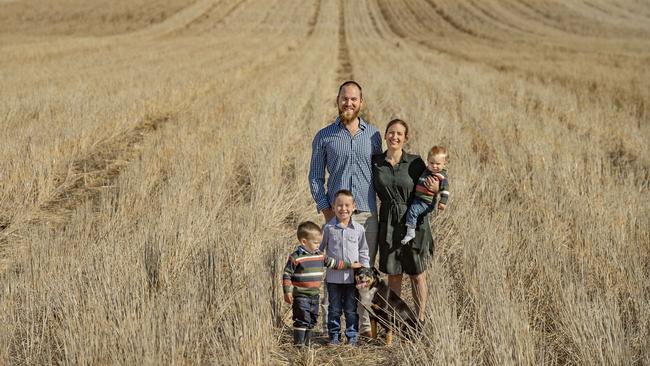
“I like to hope that healthy soil will cope with environmental stresses better,” he said.
Working alongside his father, they follow a rigid five-year crop rotation, starting with a brown manure that contains tillage radish, followed by canola, scepter wheat, samaria beans or hallmark lentils and finally compass barley.
About 80 per cent of the soil’s nitrogen requirements are spread before sowing, with Kyle using ammonium sulfate instead of urea as his preferred source of nitrogen for the alkaline soils.
The Donald farm is a mix of self-mulching clays to hard-setting red rises and a small amount of sand, with an average pH of about 8.
“We have a real focus on consistently improving our nitrogen-use efficiency,” Kyle said.
“This season we achieved 5.75 units of N applied per tonne of barley, but we’ve got a long way to go I think in reducing that number across the farm.”
He also uses a micronised rock phosphate fertiliser suspended in liquid at planting, and a small amount of monoammonium phosphate.
The dryland operation receives an average 365mm of annual rainfall. Kyle tries to capitalise on any out-of-season rain by using a strip-and-disc system.
Sowing starts April 1 and runs until May 15.
Harvest kicks off in December, usually starting with canola, and runs for six weeks finishing on a lower-priced commodity such as faba beans.
Kyle said despite plenty of rain last year, yields were “somewhat disappointing”.
Cereal crops averaged 3.5-4 tonnes a hectare, which is above long-term average “so I shouldn’t complain too much”, he said. “Between hail and disease, it was a difficult season.”
Margins on their canola, wheat, lentils and barley fluctuate with the seasons. Faba beans were “the only real dud” when it came to profits, but the crop offered big agronomic benefits in nitrogen fixation and weed control, Kyle said.
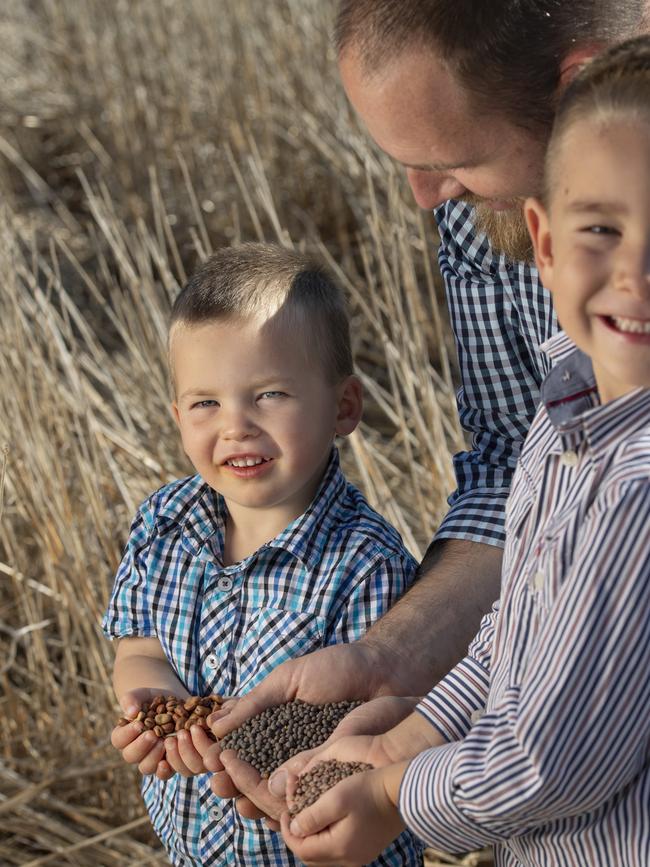
SUSTAINABLE SAVINGS
Kyle first started investigating sustainable certification three years ago, working with not-for-profit group Certified Sustainable, which has developed a standard for growers, processors, wholesalers and retailers.
Founded by a group of farmers in 2014, the organisation’s framework for farmers benchmarks against six pillars: traceability, soil health, water conservation, biodiversity and emissions, records and social expectations.
Managing director Ash Truscott said the standard was independently administered by Deakin University, with on-farm audits done annually.
The group was also working hard to establish markets for certified produce, he said.
“Demand and interest is growing. Organisations are not only aiming to operate in a more sustainable manner but are also responding to the growing consumer demand and expectations for sustainable products,” he said.
To carry a Certified Sustainable logo on a product, all parties along the supply chain from farm to manufacturer must be accredited.
Industry development manager Miriam Neilson said many farmers interested in certification were already ticking a lot of the “sustainable” boxes.
“Usually (farmers that contact Certified Sustainable) have been working on enabling their soils to be able to cycle nutrients, carbon and water really effectively and efficiently,” she said. “It is only through that they can meet the standards.”
To be accredited, growers must maintain or increase their soil fertility, structure and biological activity by a combination of methods, which can include cover crops, brown manure, minimum or no-till practices, applications of compost and strong rotations.
“Importantly the use of chemicals must be in accordance with the standard,” Miriam said.
No group B chemicals are allowed, and the use of fungicides is prohibited.
For Kyle, that has been one of the biggest challenges.
“While we weren’t big users (of group B herbicides), they’re handy tools to have in the tool belt,” he said. “It’s made us think outside the square, and change a few things around.”
To keep on top of weeds, they turned to weed seed control at harvest using chaff lining and focusing on rotations so two cereal crops are never grown in succession.
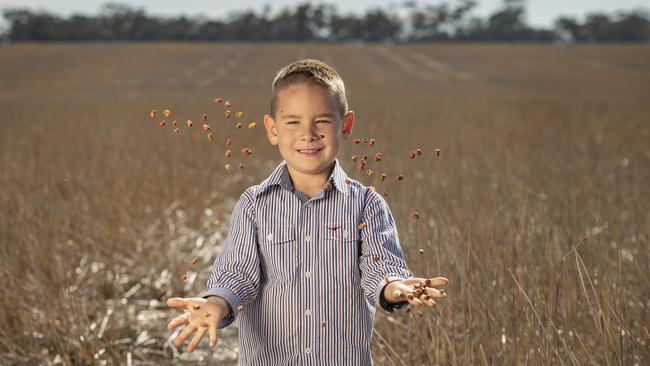
Reducing emissions across all scopes of the supply chain was also a goal of the standard, Miriam said.
“The primary source of most emissions in a farming operation is fertiliser use,” she said. “Diesel use on farm is a smaller proportion of what emissions are, as is (use of) crop protectants.”
Kyle focuses on being as efficient as possible with fertiliser applications, and also fixing nitrogen in the soil using legumes.
The result in this year’s 600-tonne barley harvest was a 67 per cent reduction in CO2-equivalent emissions compared to industry averages.
Kyle said his main aim was not to reduce input use, but instead to work as efficiently and cost-effectively as possible.
“Everything we use in agriculture, excluding rain and sunlight, has an energy cost attached. If we can be more efficient every time we use anything, it can have a significant impact on energy consumption,” he said.
While Kyle is the first to certify barley in Victoria, growers in other states have been working with Certified Sustainable for longer.
Miriam said the average emissions reduction for certified operators was 60-80 per cent.
As part of meeting the standard, Kyle also sap-tests crops annually to check for nutrient deficiencies. “We’re not trying to guess plants’ requirements now,” he said.
The certification has led to a premium price for his barley this year, and in the future he hopes to pursue it with other crops. “But right now the limiting factor is the lack of markets,” he said.
As Boortmalt and Bintani roll his sustainable malted barley out to brewers, he hopes it’s a sign of things to come.
“I see the demand growing for grain grown with significantly lower environmental impact,” he said.
“And it’s also really cool to be part of a process where our barley goes into making a great quality product, rather than just being sheep feed.”



